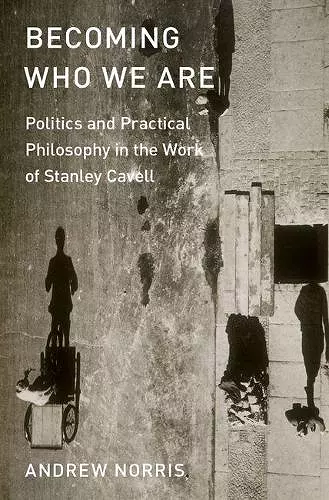Becoming Who We Are
Politics and Practical Philosophy in the Work of Stanley Cavell
Format:Hardback
Publisher:Oxford University Press Inc
Published:31st Aug '17
Currently unavailable, and unfortunately no date known when it will be back

While much literature exists on the work of Stanley Cavell, this is the first monograph on his contribution to politics and practical philosophy. As Andrew Norris demonstrates, though skepticism is Cavell's central topic, Cavell understands it not as an epistemological problem or position, but as an existential one. The central question is not what we know or fail to know, but to what extent we have made our lives our own, or failed to do so. Accordingly, Cavell's reception of Austin and Wittgenstein highlights, as other readings of these figures do not, the uncanny nature of the ordinary, the extent to which we ordinarily fail to mean what we say and be who we are. Becoming Who We Are charts Cavell's debts to Heidegger and Thompson Clarke, even as it allows for a deeper appreciation of the extent to which Cavell's Emersonian Perfectionism is a rewriting of Rousseau's and Kant's theories of autonomy. This in turn opens up a way of understanding citizenship and political discourse that develops points made more elliptically in the work of Hannah Arendt, and that contrasts in important ways with the positions of liberal thinkers like John Rawls and Jürgen Habermas on the one hand, and radical democrats like Ernesto Laclau and Chantal Mouffe on the other.
This book provides an introduction not only to the political and practical dimensions of Cavell's thought, but also to the oldest and deepest layers of his philosophy as a whole, found in the essays he published in Must We Mean What We Say? (1969), and in the first three parts of The Claim of Reason (1979) ... this is a deeply researched, clearly written, engaging and provocative book. There are insights on every page, and Norris is especially good at recovering the early California Cavell of Mates, Clarke, and Austin, integrating Rousseau's version of the social contract with ordinary language philosophy, and articulating and defending Cavell's Emersonian Perfectionism. * Russell B. Goodman, Notre Dame Philosophical Reviews *
Andrew Norris, a political theorist with deep philosophical training, has written a brilliant book based on extensive scholarship that is clear in its exposition, comprehensive in its scope, and philosophically useful. If you have resisted Cavell, this book should lead you to reconsider; if you have been attracted to Cavell, this book will help you on your way; if you have not known Cavell, this is where to start. * Tracy Strong, Professor of Political Theory and Philosophy, University of Southampton *
We live politically within individual antagonisms and factional oppositions. Values are reduced to preferences, and unequal economic and political power decides whose preferences are unequally satisfied. In his passionate, patient, and acutely insightful study of Stanley Cavell's political thinking—the first systematic work of its kind—Andrew Norris tracks Cavell's efforts to move us beyond this condition and "toward the light or instinct of freedom." There is no better place to look for an account of the possibility of democratic political hope. * Richard Eldridge, Charles and Harriett Cox McDowell Professor of Philosophy, Swarthmore College *
Andrew Norris is an ideal reader of Cavell—a philosopher for whom reading texts, art, and people, and being read, in turn, by them are central concerns. Cavell's philosophy aims to recover the human voice, most especially one's own voice, from its "skeptical" denial in traditional skepticism and constructive metaphysics. Norris's originality lies in his sense of the intimacy of the connection between self-denial and self-recovery and in being alert to the ethical and political implications of the idea that Cavell traces in the writings of Wittgenstein, Emerson and Thoreau, namely, that in order to find ourselves we must first lose ourselves. * David Macarthur, Associate Professor of Philosophy, The University of Sydney *
ISBN: 9780190673949
Dimensions: 157mm x 236mm x 25mm
Weight: 567g
328 pages